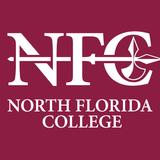- Lake City Community College (LCCC) has established a strong tradition of providing high quality, postsecondary educational opportunities to the citizens of North Florida. What began as a school of Forestry in 1947, has now grown to be a comprehensive, public community college serving more than 7,000 students a year.
School Highlights
Florida Gateway College serves 4,037 students (40% of students are full-time).
The college's student:teacher ratio of 16:1 is lower than the state community college average of 20:1.
Minority enrollment is 29% of the student body (majority Black), which is less than the state average of 67%.
Quick Stats (2025)
- Enrollment: 4,037 students
- In-state tuition: $3,100
- Out-state tuition: $11,747
- Student:teacher ratio: 16:1
- Minority enrollment: 29%
- Source: Integrated Postsecondary Education Data System (IPEDS)
Top Rankings
Florida Gateway College ranks among the top 20% of public schools in Florida for:
Category
Attribute
Debt For Students
School Overview
The teacher population of 248 teachers has stayed relatively flat over five years.
Florida Gateway College
(FL) Community College Avg.
Carnegie Classification
Baccalaureate/Associate's Colleges: Mixed Baccalaureate/Associate's
Not applicable, not in Carnegie universe (not accredited or nondegree-granting)
Institution Level
Four or more years
At least 2 but less than 4 years
Institution Control
Public
Private not-for-profit
Total Faculty
248 staff
139 staff
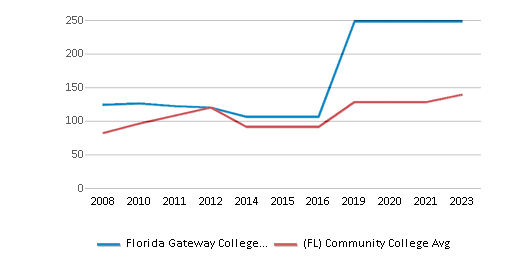
Student Body
The student population of Florida Gateway College has grown by 18% over five years.
The student:teacher ratio of 16:1 has increased from 12:1 over five years.
The Florida Gateway College diversity score of 0.46 is less than the state average of 0.76. The school's diversity has grown by 15% over five years.
Total Enrollment
4,037 students
646 students
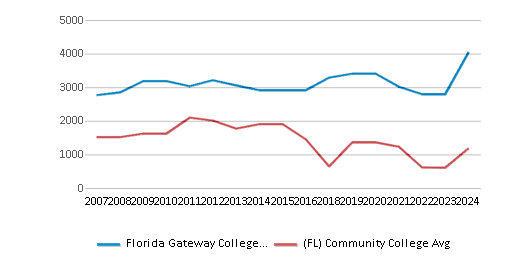
Student : Teacher Ratio
16:1
20:1
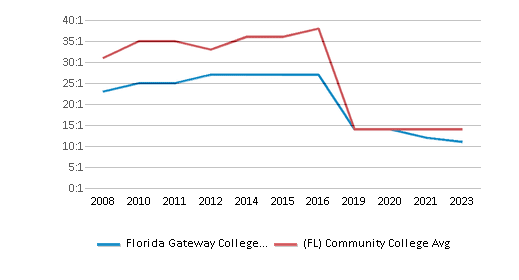
# Full-Time Students
1,623 students
587 students
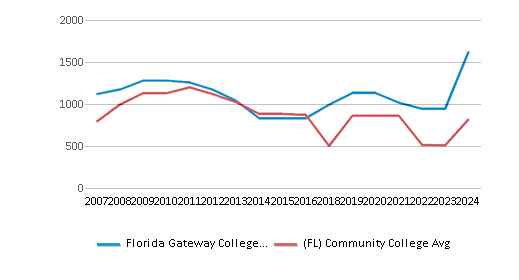
# Part-Time Students
2,414 students
557 students
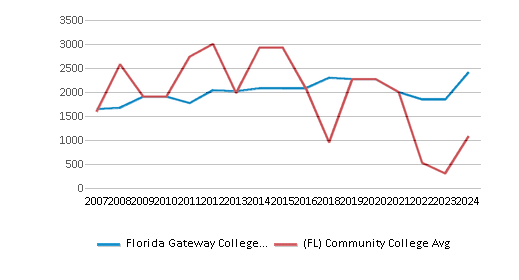
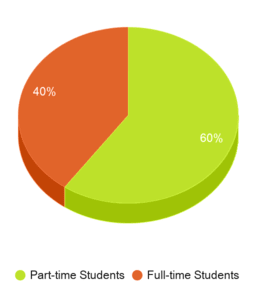
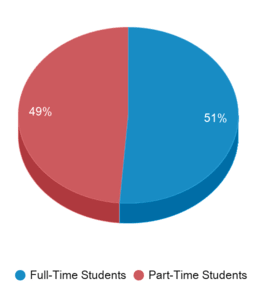
# Enrollment Undergraduate
403 students
261 students
# Full-Time Undergraduate Students
1,623 students
574 students
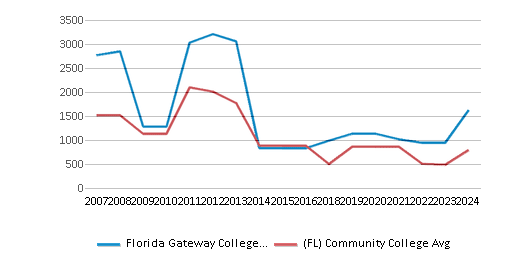
# Full-Time Graduate Students
n/a
85 students
# Part-Time Undergraduate Students
2,414 students
648 students
# Part-Time Graduate Students
n/a
36 students
Total Dormitory Capacity
44 students
174 students
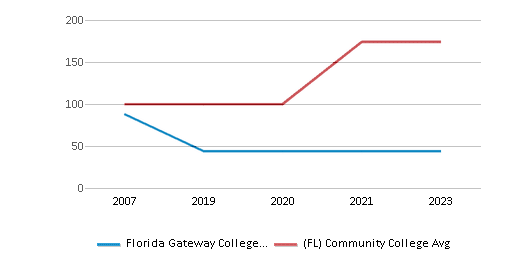
% American Indian/Alaskan
n/a
n/a
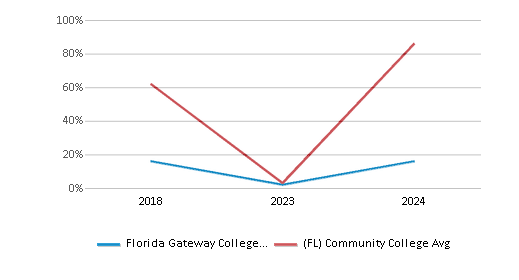
% Asian
1%
5%
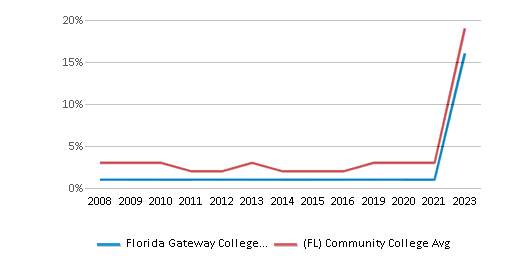
% Hispanic
7%
30%
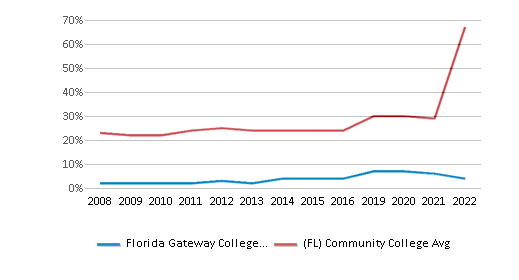
% Black
18%
19%
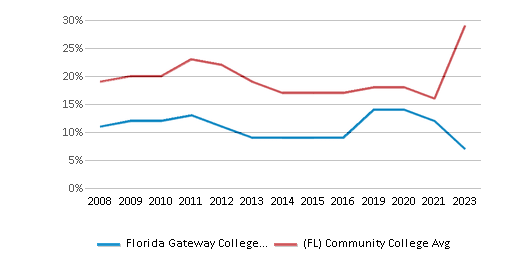
% White
71%
33%
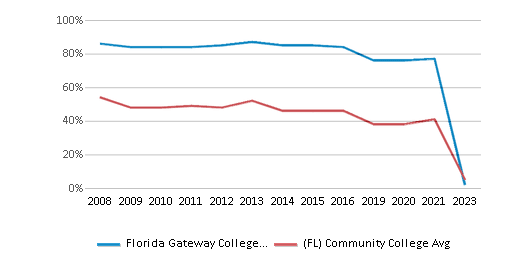
% Hawaiian
n/a
2%
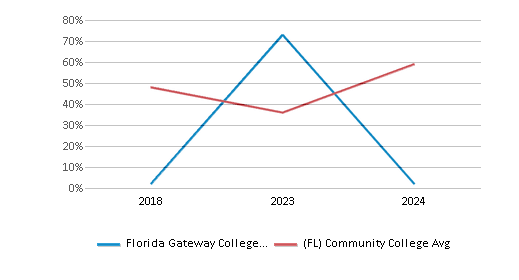
% Two or more races
2%
4%
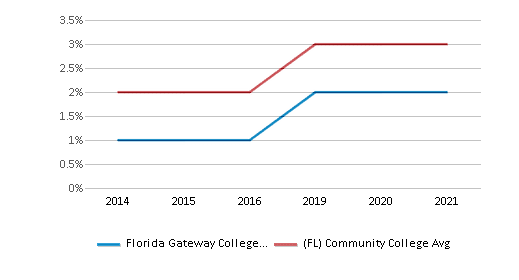
% Non Resident races
n/a
2%
% Unknown races
n/a
5%
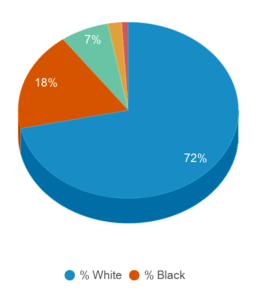
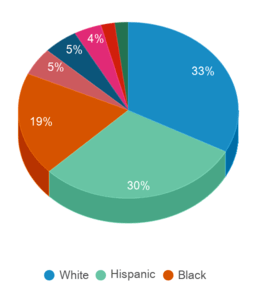
Diversity Score
0.46
0.76
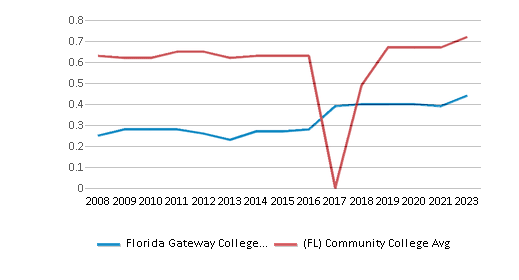
College Completion Rate (Students who graduate in less than 4 years)
48%
50%
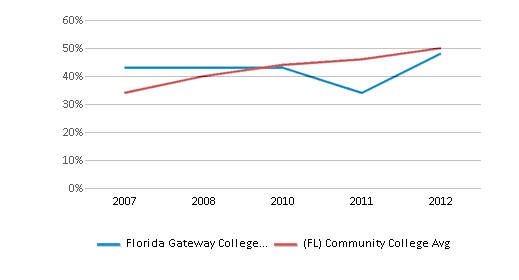
College Completion Rate (Students who graduate in 4 years or more than 4 years)
0.6364%
0.4334%
Average Graduate Earnings (10 Years)
$31,500
$31,500
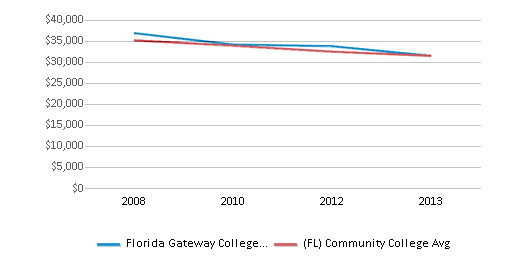
Tuition and Acceptance Rate
The public in-state tuition of $3,100 is less than the state average of $3,280. The in-state tuition has stayed relatively flat over four years.
The public out-state tuition of $11,747 is more than the state average of $10,578. The out-state tuition has stayed relatively flat over four years.
In-State Tuition Fees
$3,100
$3,280
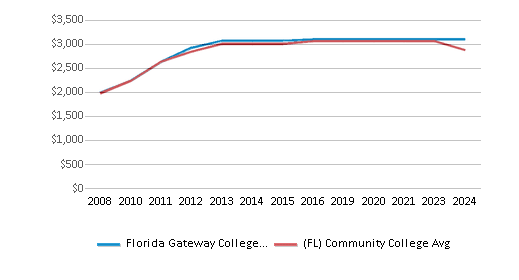
Out-State Tuition Fees
$11,747
$10,578
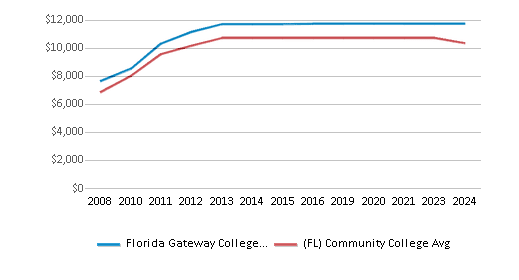
% Students Receiving Some Financial Aid
75%
88%
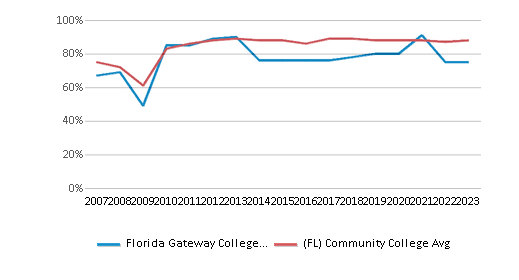
Median Debt for Graduates
$6,750
$9,750
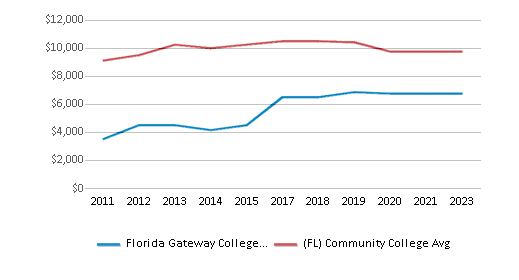
Median Debt for Dropouts
$4,250
$5,500
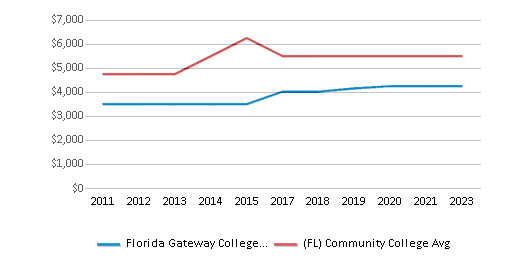
Acceptance Rate
n/a
94%
SAT Reading
n/a
442
SAT Math
n/a
429
ACT Composite
n/a
18
ACT English
n/a
18
ACT Math
n/a
18
Source: 2024 (or latest year available) Integrated Postsecondary Education Data System (IPEDS)
School Notes
- Today the campus of LCCC is an attractive site, nestled in one hundred acres of southern pines, with over twenty-five modern buildings surrounded by crepe myrtle and azalea shrubbery. The College offers outstanding programs in the liberal arts and sciences. A significant number of students who begin their college career in these programs earn associate degrees, and then successfully transfer to senior institutions where they maintain superior records when compared to their university counterparts. The College also offers outstanding opportunities in such diverse vocational programs as business administration, computer programming, forestry, golf course operations, irrigation technology, landscape technology, cosmetology, and many more. The College provides comprehensive training in several allied health fields such as registered nursing, practical nursing, emergency medical services, medical laboratory technology, and others. Each year the College maintains the search for excellence by offering new programs, which meet the needs of its district. Although Lake City Community College is only one of two community colleges in the state to offer residential facilities, it is not uncommon for students to commute up to 50 miles one way to attend classes. The College's district encompasses five North Florida counties: Baker, Columbia, Dixie, Gilchrist, and Union. This 2,683 square mile district is an area twice the size of Rhode Island. The region around the College is commonly referred to as Florida's Crown. Lake City is situated midway between the Atlantic Ocean and the Gulf of Mexico. The geographic area around the College would generally be considered rural. The moderate climate, hospitality of the community, and beauty of the adjacent recreational areas draw visitors and newcomers from around the world. The College itself is located approximately six miles east on Highway 90 from downtown Lake City, Florida, by the airport. Lake City Community College offers you a resource in the staff, solid academic programs, a variety of college activities, new technology and newly renovated buildings, facilities and dorms.
Frequently Asked Questions
How much does Florida Gateway College cost?
Florida Gateway College's tuition is approximately $3,100 for In-State students and $11,747 for Out-State students.
What is Florida Gateway College's ranking?
Florida Gateway College ranks among the top 20% of community college in Florida for: Least debt for graduating students.
Recent Articles

Obtaining Your Bachelor's Degree at a Community College
Explore the evolving landscape of community colleges offering bachelor's degrees, addressing affordability, accessibility, and workforce needs.

A to Z of Community College Certificates and Courses
From business and healthcare to technology and skilled trades, the article showcases the breadth of options available to students seeking to enhance their knowledge, develop new skills, or pursue career advancement.

What is a Community College?
This comprehensive guide explains what a community college is, its history, and its role in higher education. It covers the types of programs offered, differences from four-year colleges, benefits of attending, and important considerations for prospective students, providing valuable insights for those exploring educational options.

